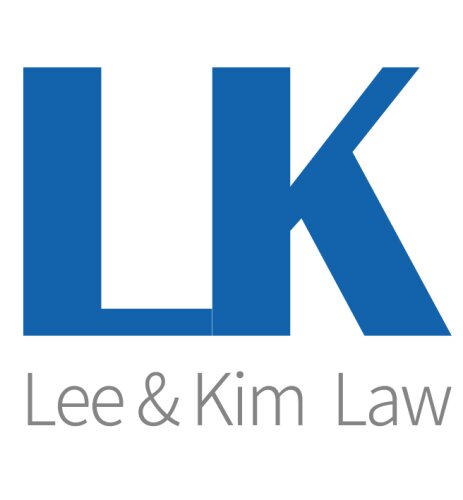Best Land Use & Zoning Lawyers in South Korea
Share your needs with us, get contacted by law firms.
Free. Takes 2 min.
Free Guide to Hiring a Real Estate Lawyer
Or refine your search by selecting a city:
List of the best lawyers in South Korea
About Land Use & Zoning Law in South Korea
Land use and zoning laws in South Korea are designed to regulate the development and use of land across the country. The primary goal is to balance land development with environmental preservation while ensuring that urban growth meets the needs of an increasing population. These laws influence how land can be used, including restrictions on building types and functions in specific areas. The national government sets broad policies, but local governments have considerable authority in enforcing zoning ordinances and making land use decisions. Understanding these regulations is crucial for those engaged in real estate development, urban planning, and property investment.
Why You May Need a Lawyer
There are several instances where legal expertise in land use and zoning can be invaluable:
1. **Navigating Complex Regulations:** The regulatory environment in South Korea can be complex, particularly with layers of national and local rules. A lawyer can help you comprehend these layered regulations.
2. **Real Estate Development:** Developers need legal advice to ensure compliance with zoning laws and to obtain necessary permits and approvals.
3. **Property Disputes:** Land use often involves disputes regarding property boundaries, land use violations, or rezoning efforts, where legal representation is essential.
4. **Zoning Changes:** When seeking to initiate a rezoning or to oppose zoning changes that might affect your property, a lawyer can advocate on your behalf.
5. **Environmental Compliance:** Projects may need to comply with environmental regulations and assessments, sometimes requiring legal intervention to navigate these requirements.
Local Laws Overview
Key aspects of local land use and zoning laws in South Korea include:
1. **Zoning Categories:** Zoning laws categorize land based on its intended use, such as residential, commercial, industrial, or agricultural. Each category has specific regulations about the type of structures that can be built.
2. **Permits and Approvals:** Development projects typically require several permits and approvals from local government bodies, including construction permits, land use permits, and environmental approvals.
3. **Growth Management:** To curb urban sprawl and manage growth, local governments often enforce policies that limit developmental density and implement height restrictions.
4. **Historical and Cultural Protections:** Areas with cultural or historical significance are subject to additional layers of regulation, aimed at preserving South Korea’s cultural heritage.
5. **Public Participation:** The legal framework allows for public input during the planning process, which can influence zoning decisions and amendments.
Frequently Asked Questions
What is the process for changing the zoning classification of my property?
Rezoning is typically initiated through an application with the local government. It requires an assessment process including public hearings. Consulting with a lawyer can help you navigate this complex process.
Can I contest a zoning decision made by my local government?
Yes, you can file an appeal against a zoning decision. A lawyer can assist you in preparing the required documentation and represent you during hearings or legal proceedings.
How can I find out the zoning of a particular piece of land?
Zoning information can be obtained from the local municipal or county government, usually through their planning or development office.
What are the penalties for violating land use regulations?
Penalties vary depending on the severity of the violation but may include fines, injunctions, or forced demolition of unauthorized structures.
Is it possible to obtain a variance from zoning laws for my project?
A variance can be requested when strict application of zoning laws would cause undue hardship. Approval is at the discretion of the zoning board and usually requires a compelling justification.
What role do environmental assessments play in land use planning?
Environmental assessments are required for projects that might impact natural resources or the environment. These assessments must be approved before construction can proceed.
How does land use planning accommodate public interests?
Planning authorities must consider public interests, incorporating public feedback into planning proposals. Public hearings and comment periods are common practices.
Can zoning laws be retroactively applied to existing structures?
Typically, existing structures are grandfathered in unless extensive renovations change their use or scope. Consult with a lawyer for specifics regarding your situation.
Are there incentives for sustainable or green developments?
Yes, various programs and incentives exist to encourage eco-friendly developments, including tax discounts and expedited permit processes.
What is the procedure for obtaining a construction permit?
Construction permits require submitting detailed plans and documentation to the local authorities, demonstrating compliance with zoning laws and safety standards.
Additional Resources
1. **Korea Land and Housing Corporation (LH):** Provides resources and information on housing and land policies.
2. **Ministry of Land, Infrastructure, and Transport (MOLIT):** Oversees national policies on land use and provides regulatory documents and guidelines.
3. **Local Government Websites:** Many local governments offer zoning maps, applications, and guidance online tailored to specific regions.
4. **Professional Associations:** Organizations like the Korean Institute of Architects offer resources and networks for professionals involved in land use and zoning.
Next Steps
1. **Identify Your Needs:** Clarify what you need legal assistance for, whether it's a zoning change, compliance issue, or development proposal.
2. **Consult a Lawyer:** Research and contact lawyers specializing in land use and zoning. A consultation can provide clarity on your situation and options moving forward.
3. **Gather Documentation:** Collect all relevant documentation, such as land deeds, current zoning information, and any correspondence with governmental bodies.
4. **Understand Costs:** Discuss potential legal costs with your lawyer to ensure that you are comfortable with the financial commitment involved.
5. **Stay Informed:** Make sure to stay updated on any changes in local zoning laws or regulations that could affect your property or plans.
Lawzana helps you find the best lawyers and law firms in South Korea through a curated and pre-screened list of qualified legal professionals. Our platform offers rankings and detailed profiles of attorneys and law firms, allowing you to compare based on practice areas, including Land Use & Zoning, experience, and client feedback.
Each profile includes a description of the firm's areas of practice, client reviews, team members and partners, year of establishment, spoken languages, office locations, contact information, social media presence, and any published articles or resources. Most firms on our platform speak English and are experienced in both local and international legal matters.
Get a quote from top-rated law firms in South Korea — quickly, securely, and without unnecessary hassle.
Disclaimer:
The information provided on this page is for general informational purposes only and does not constitute legal advice. While we strive to ensure the accuracy and relevance of the content, legal information may change over time, and interpretations of the law can vary. You should always consult with a qualified legal professional for advice specific to your situation.
We disclaim all liability for actions taken or not taken based on the content of this page. If you believe any information is incorrect or outdated, please contact us, and we will review and update it where appropriate.
Browse land use & zoning law firms by city in South Korea
Refine your search by selecting a city.















